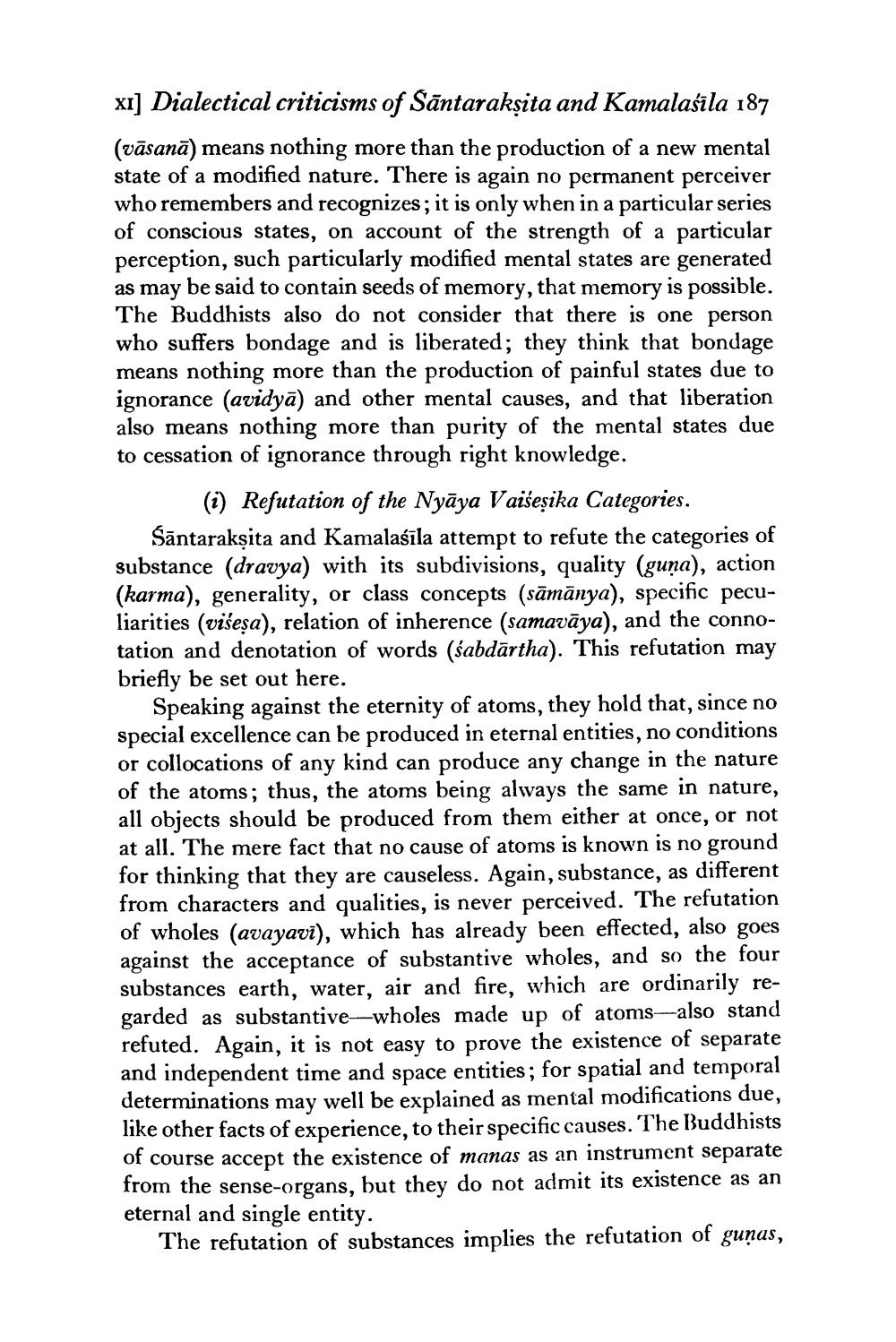________________
XI) Dialectical criticisms of Sāntarakṣita and Kamalašīla 187 (vāsanā) means nothing more than the production of a new mental state of a modified nature. There is again no permanent perceiver who remembers and recognizes; it is only when in a particular series of conscious states, on account of the strength of a particular perception, such particularly modified mental states are generated as may be said to contain seeds of memory, that memory is possible. The Buddhists also do not consider that there is one person who suffers bondage and is liberated; they think that bondage means nothing more than the production of painful states due to ignorance (avidyā) and other mental causes, and that liberation also means nothing more than purity of the mental states due to cessation of ignorance through right knowledge.
(i) Refutation of the Nyāya Vaišeșika Categories. śāntarakṣita and Kamalaśīla attempt to refute the categories of substance (dravya) with its subdivisions, quality (guņa), action (karma), generality, or class concepts (sāmānya), specific peculiarities (višeșa), relation of inherence (samavāya), and the connotation and denotation of words (sabdārtha). This refutation may briefly be set out here.
Speaking against the eternity of atoms, they hold that, since no special excellence can be produced in eternal entities, no conditions or collocations of any kind can produce any change in the nature of the atoms; thus, the atoms being always the same in nature, all objects should be produced from them either at once, or not at all. The mere fact that no cause of atoms is known is no ground for thinking that they are causeless. Again, substance, as different from characters and qualities, is never perceived. The refutation of wholes (avayavi), which has already been effected, also goes against the acceptance of substantive wholes, and so the four substances earth, water, air and fire, which are ordinarily regarded as substantive—wholes made up of atoms-also stand refuted. Again, it is not easy to prove the existence of separate and independent time and space entities; for spatial and temporal determinations may well be explained as mental modifications due, like other facts of experience, to their specific causes. The Buddhists of course accept the existence of manas as an instrument separate from the sense-organs, but they do not admit its existence as an eternal and single entity.
The refutation of substances implies the refutation of gunas,




